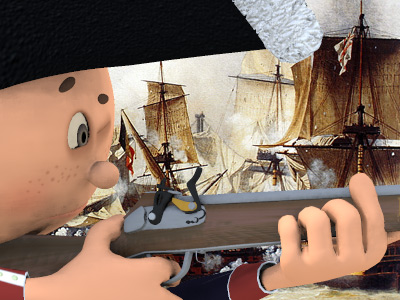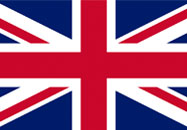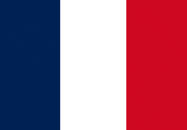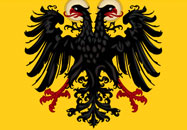Napoleonic Wars (1803-1815)
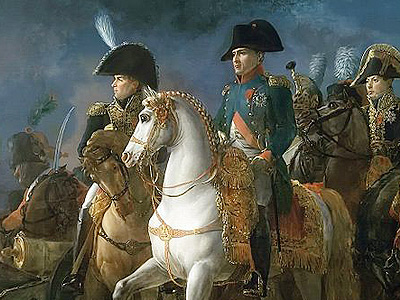
The Invasion of Russia 1812
The Treaty of Tilsit in 1807 resulted in the Anglo-Russian War (1807–12). Emperor Alexander I declared war on Britain after the British attack on Denmark in September 1807. British men-of-war supported the Swedish fleet during the Finnish War and won victories over the Russians in the Gulf of Finland in July 1808 and August 1809. The success of the Russian army on the land forced Sweden to sign peace treaties with Russia in 1809 and with France France, officially the French Republic is transcontinental country predominantly located in Western Europe and spanning overseas regions and territories in the Americas and the Atlantic, Pacific and Indian Oceans. France reached its political and military zenith in the early 19th century under Napoleon Bonaparte, subjugating much of continental Europe and establishing the First French Empire. in 1810 and to join the blockade against Britain
France, officially the French Republic is transcontinental country predominantly located in Western Europe and spanning overseas regions and territories in the Americas and the Atlantic, Pacific and Indian Oceans. France reached its political and military zenith in the early 19th century under Napoleon Bonaparte, subjugating much of continental Europe and establishing the First French Empire. in 1810 and to join the blockade against Britain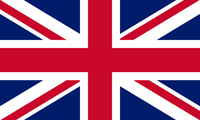 The United Kingdom of Great Britain and Ireland was a sovereign state in Northwestern Europe that comprised the entirety of the British Isles between 1801 and 1922. The United Kingdom, having financed the European coalition that defeated France during the Napoleonic Wars, developed a large Royal Navy that enabled the British Empire to become the foremost world power for the next century.. But Franco-Russian relations became progressively worse after 1810, and the Russian war with Britain effectively ended. In April 1812, Britain, Russia
The United Kingdom of Great Britain and Ireland was a sovereign state in Northwestern Europe that comprised the entirety of the British Isles between 1801 and 1922. The United Kingdom, having financed the European coalition that defeated France during the Napoleonic Wars, developed a large Royal Navy that enabled the British Empire to become the foremost world power for the next century.. But Franco-Russian relations became progressively worse after 1810, and the Russian war with Britain effectively ended. In April 1812, Britain, Russia Russian Empire was an empire and the final period of the Russian monarchy from 1721 to 1917, ruling across large parts of Eurasia. The rise of the Russian Empire coincided with the decline of neighbouring rival powers: the Swedish Empire, the Polish–Lithuanian Commonwealth, Qajar Iran, the Ottoman Empire, and Qing China. Russia remains the third-largest empire in history, surpassed only by the British Empire and the Mongol Empire. and Sweden signed secret agreements directed against Napoleon.
Russian Empire was an empire and the final period of the Russian monarchy from 1721 to 1917, ruling across large parts of Eurasia. The rise of the Russian Empire coincided with the decline of neighbouring rival powers: the Swedish Empire, the Polish–Lithuanian Commonwealth, Qajar Iran, the Ottoman Empire, and Qing China. Russia remains the third-largest empire in history, surpassed only by the British Empire and the Mongol Empire. and Sweden signed secret agreements directed against Napoleon.
The central issue for both Napoleon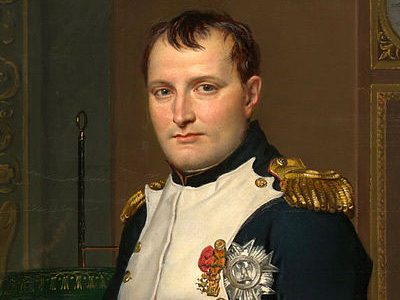 Napoleon Bonaparte (1769-1821), was a French military and political leader who rose to prominence during the French Revolution and led several successful campaigns during the French Revolutionary Wars. As Napoleon I, he was Emperor of the French from 1804 until 1814, and again in 1815. One of the greatest commanders in history, his wars and campaigns are studied at military schools worldwide. Napoleon Bonaparte » and Tsar Alexander I was control over Poland. Each wanted a semi-independent Poland he could control. As Esdaile notes, "Implicit in the idea of a Russian Poland was, of course, a war against Napoleon." Schroeder says Poland was "the root cause" of Napoleon's war with Russia but Russia's refusal to support the Continental System was also a factor.
Napoleon Bonaparte (1769-1821), was a French military and political leader who rose to prominence during the French Revolution and led several successful campaigns during the French Revolutionary Wars. As Napoleon I, he was Emperor of the French from 1804 until 1814, and again in 1815. One of the greatest commanders in history, his wars and campaigns are studied at military schools worldwide. Napoleon Bonaparte » and Tsar Alexander I was control over Poland. Each wanted a semi-independent Poland he could control. As Esdaile notes, "Implicit in the idea of a Russian Poland was, of course, a war against Napoleon." Schroeder says Poland was "the root cause" of Napoleon's war with Russia but Russia's refusal to support the Continental System was also a factor.
In 1812, at the height of his power, Napoleon invaded Russia with a pan-European Grande Armée, consisting of 650,000 men (270,000 Frenchmen and many soldiers of allies or subject areas). The French forces crossed the Niemen River on 24 June 1812. Russia proclaimed a Patriotic War, and Napoleon proclaimed a Second Polish war. The Poles supplied almost 100,000 men for the invasion force, but against their expectations, Napoleon avoided any concessions to Poland, having in mind further negotiations with Russia.
The Grande Armée marched through Russia, winning some relatively minor engagements and the major Battle of Smolensk on 16–18 August. In the same days, part of the French Army led by Marshal Nicolas Oudinot was stopped in the Battle of Polotsk by the right wing of the Russian Army, under command of General Peter Wittgenstein. This prevented the French march on the Russian capital, Saint Petersburg; the fate of the invasion was decided in Moscow, where Napoleon led his forces in person.
Russia used scorched-earth tactics, and harried the Grande Armée with light Cossack cavalry. The Grande Armée did not adjust its operational methods in response. This led to most of the losses of the main column of the Grande Armée, which in one case amounted to 95,000 men, including deserters, in a week.
The main Russian army retreated for almost three months. This constant retreat led to the unpopularity of Field Marshal Michael Andreas Barclay de Tolly and a veteran, Prince Mikhail Kutuzov, was made the new Commander-in-Chief by Tsar Alexander I. Finally, the two armies engaged in the Battle of Borodino on 7 September, in the vicinity of Moscow. The battle was the largest and bloodiest single-day action of the Napoleonic Wars, involving more than 250,000 men and resulting in at least 70,000 casualties. It was indecisive; the French captured the main positions on the battlefield, but failed to destroy the Russian army. Logistical difficulties meant that French casualties could not be replaced, unlike Russian ones.

The Battle of Borodino as depicted by Louis Lejeune. The battle was the largest and bloodiest single-day action of the Napoleonic Wars

The Battle of Borodino as depicted by Louis Lejeune. The battle was the largest and bloodiest single-day action of the Napoleonic Wars
( Click image to enlarge)
Napoleon entered Moscow on 14 September, after the Russian Army had retreated yet again. By then, the Russians had largely evacuated the city and released criminals from the prisons to inconvenience the French; the governor, Count Fyodor Rostopchin, ordered the city to be burnt. Alexander I refused to capitulate, and the peace talks attempted by Napoleon failed. In October, with no sign of clear victory in sight, Napoleon began the disastrous Great Retreat from Moscow.

Napoleon's withdrawal from Russia, a painting by Adolph Northen

Napoleon's withdrawal from Russia, a painting by Adolph Northen
( Click image to enlarge)
At the Battle of Maloyaroslavets the French tried to reach Kaluga, where they could find food and forage supplies. The replenished Russian Army blocked the road, and Napoleon was forced to retreat the same way he had come to Moscow, through the heavily ravaged areas along the Smolensk road. In the following weeks, the Grande Armée was dealt a catastrophic blow by the onset of the Russian Winter, the lack of supplies and constant guerrilla warfare by Russian peasants and irregular troops.
When the remnants of the Napoleon's army crossed the Berezina River in November, only 27,000 fit soldiers survived, with 380,000 men dead or missing and 100,000 captured. Napoleon then left his men and returned to Paris to prepare the defence against the advancing Russians. The campaign effectively ended on 14 December 1812, when the last enemy troops left Russia. The Russians had lost around 210,000 men, but with their shorter supply lines, they soon replenished their armies.
HISTORY
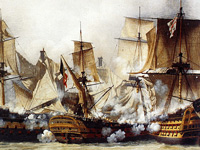
RESOURCES
This article uses material from the Wikipedia article "Napoleonic Wars", which is released under the Creative Commons Attribution-Share-Alike License 3.0.
© Stories Preschool. All Rights Reserved.
